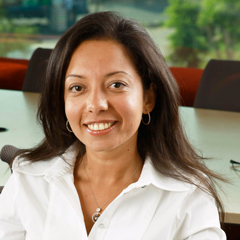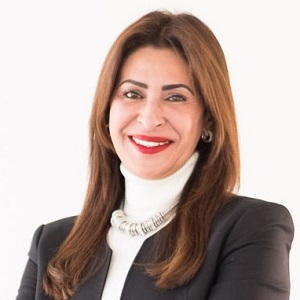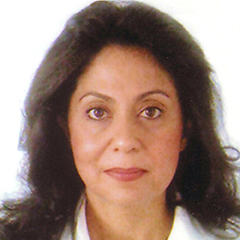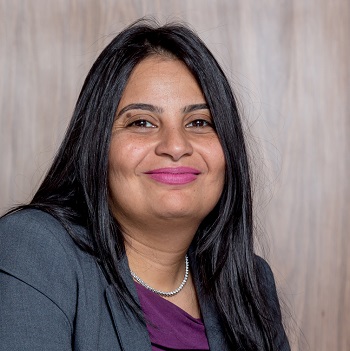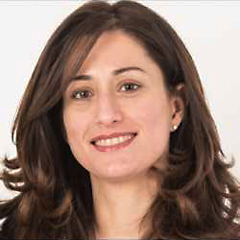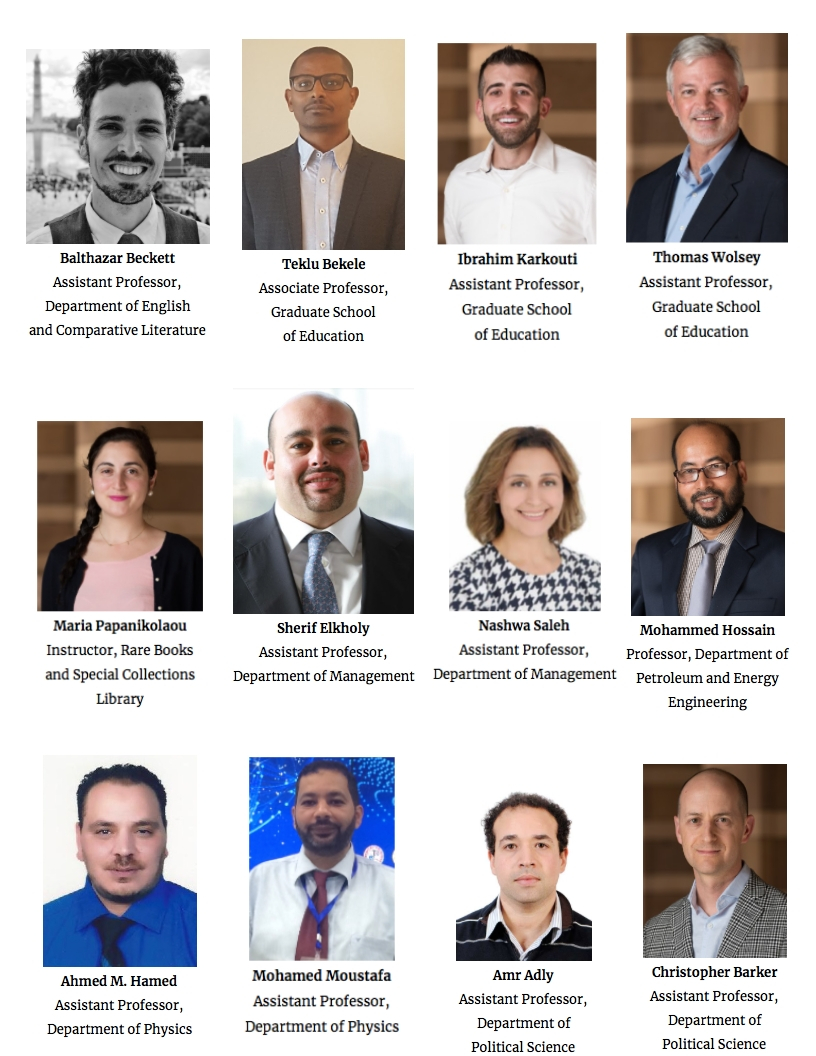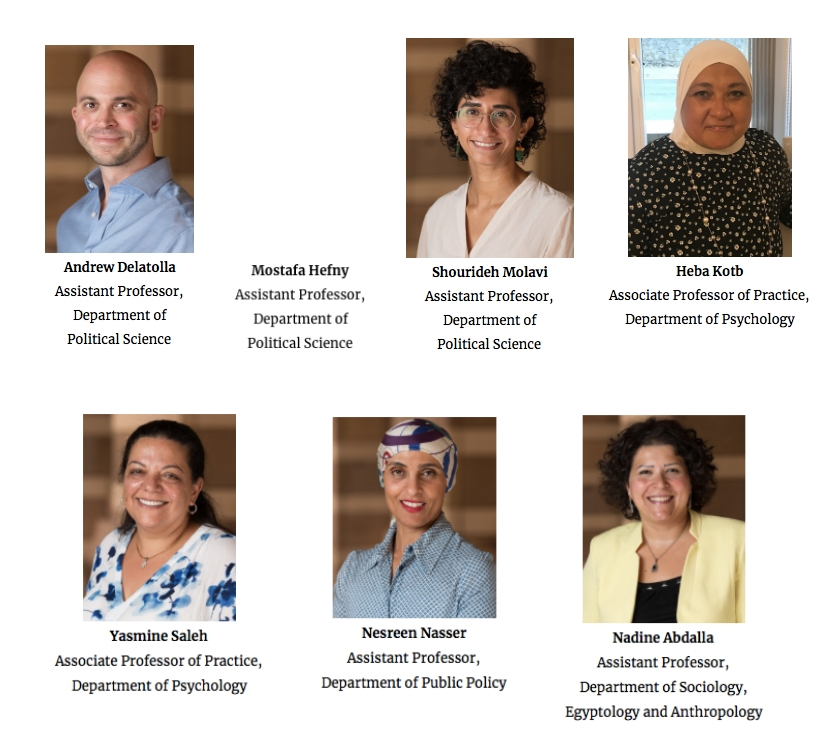In what promises to be the first beautified water tower in Egypt, AUC has partnered with TAMEER, a real estate and development company, to transform the water tower outside campus into a work of art, with approval from the municipality. And instead of hiring a designer, AUC students will be the designers. A competition for the best student team design for the water tower will commence on October 17.
Toward the south edge of AUC's New Cairo campus, the dusty-colored water tower juts out, visible as you run around the gym's outdoor track and when you sit in the gardens behind the library. It almost fades into its sandy surroundings, ungarnished like the open land spreading behind it. Decorating this water tower is in line with international best practice, since decorated waters towers are a worldwide phenomenon, with some notable favorites such as the Gaffney Peachoid in the United States. "Once [the student design] is executed, people should no longer see a water tower," said Antoine El Khoury, managing director of TAMEER. "There is a difference between painting the tower and turning it into a piece of art so that when people see it, they are inspired."
The decorated water tower will serve as a monument for AUC and a landmark for the whole New Cairo neighborhood. "The community will feel that something has happened," explained Nagla Samir, associate professor in the Department of the Arts and one of the faculty members on the water tower beautification committee. "The AUC Tahrir Square campus was the hub of cultural life downtown, and now we have the chance to do the same thing in New Cairo."
A Reservoir of Talent
This beautification project requires more than just imagination. It requires mathematical calculations and engineering footprints. It requires a communication visibility plan and budget considerations. Due to the wide scope of this challenge, AUC students will compete in teams, working with a faculty mentor to create a viable design plan for the water tower.
The competition is inherently structured to foster collaboration between AUC disciplines. The competing teams will be academically diverse, including students from a variety of fields such as engineering, business, graphic design, architecture and marketing. Drawing from the assorted knowledge and know-how of their groups, participants will be able to conceive creative and realistic designs for the water tower. "We want to offer the students the opportunity to be involved in a comprehensive business experience," said El Khoury.
AUC students are well-equipped for this challenge. "AUC is a reservoir of talent!" exclaimed Samir. "We have the students, the faculty and the different departments. We want to bring in everybody and encourage students to engage in interdisciplinary collaborations. You don't have to be a designer or an artist or an architect to come and play with us."
This competition highlights AUC's dedication to providing students with diverse educational spaces. The interdisciplinary nature of the challenge will allow students to simulate real-life work situations, where projects would necessitate coordination between different specialists and fields. Teams will also have to balance their creative vision for the project with practical constraints, such as cost and time frame for production. "The competition will allow students to use their academic knowledge in a real-life application and brings an interdisciplinary element to their learning," said Maha Guindi, executive director of AUC's Career Center and representative on the water tower beautification committee.
"Such competitions increase student awareness of market trends, advance their career readiness and differentiate them among other candidates in the job market," Guindi added.
Such projects also give students practical experience, beyond the academic setting. "This project moves away from the classroom’s theoretical atmosphere to real-world application,” explained Magda Mostafa, associate professor and associate chair of the Department of Architecture and one of the faculty members on the water tower beautification committee. "We want them to learn to operate under a strict budget, under brand identity and other criteria. All this will prepare them for the real working world."
Once the competition goes live, students teams will participate in mentored workshops, led by faculty members “task-forcing the process,” as Samir put it. In addition to Samir and Mostafa, these faculty members will include Bahia Shebab, associate professor of practice in the Department of the Arts, and John Hoey, associate professor of practice in the Department of the Arts. The steering committee for the project is currently recruiting more faculty members for mentorship positions as well. Mentors will focus on sharing their expertise with students from other disciplines, providing guidance and training for students in fields outside their realm of study. These technical workshops will cover topics ranging from graphic and urban design to budgeting and project management.
After teams present their final designs, three finalists will be selected. The selection jury will be made up of independent representatives of TAMEER, members of the AUC community and urban designers representing the New Cairo local authority. Once three finalists are chosen, the board of directors at TAMEER will pick the winning team.
Two teams will receive a financial award, and the winning team will be offered an educational trip to Beirut. The cultural trip will function as a mini-internship with Solidere, the company behind the post-war urban regeneration of Beirut Central District. Through presentations, field tours and case studies with Solidere’s urban design team, the winning students will have the opportunity to discover all the planning, and design, as well as sociological and cultural aspects of Beirut’s transformation.
Once the team is back in Cairo, their experience will be shared with the AUC community. This exposure is a chance for students to continue learning about the world of architecture and design, in addition to getting career advice and guidance from professionals. "The trip to Beirut is intended to encourage students to explore art and architecture in a different country,” said Soha Hassan, experiential learning manager at the Career Center. “The winning team will get the chance to learn about how the culture of the country is translated into its equivalent artistic and architectural forms.”
Working with Solidere will not be the participants’ only exposure to a real development company. TAMEER will also be active throughout the competition.
"We want the students to engage in a corporate social responsibility initiative and experience that business is not only about numbers, but that behind business, there are people, and those people have values," explained El Khoury.
Urban Acupuncture
Today, more community service-based initiatives have artistic applications. AUC's decision to use art as a way to give back to its home settlement is testament to the University's commitment to serving as a center and resource for the New Cairo community.
"A lot of what we do at AUC is teach students to serve communities and the beautification of urban space,” affirmed Mostafa, discussing how architecture impacts people’s lives. “We call this urban acupuncture, where small projects lead to big change.
Echoing the same sentiment and describing how art-based community service can be impactful, Samir noted, "Art is perceivable beyond complications. It’s very flexible in content, and it’s so inviting by its very nature. Art has always been playing this role. By giving a message without clearly setting boundaries, it creates an open space.”
AUC's very architecture reflects the interdisciplinary and collaborative nature of this project. Just as the entire campus is not designed by one architect, the beautification of the water tower will be the fruit of many labors, drawing on the creativity and capabilities of faculty, students and outside companies. The 2018-2019 academic year is the perfect time to give back, as AUC looks forward to its centennial year and simultaneously celebrates its 10-year anniversary of the New Cairo campus.
For now, the beautified water tower is just an idea on the horizon, but one can already imagine the tower shimmering in the heat of the early morning –– a striking and compelling feature of the New Cairo skyline. Samir imagines students planning on meeting at the water tower and the community using it as a public marker.
"There is a chance that whatever they do, if they give it enough attention and enough care, that this could go into history. It could become a timeless landmark," Samir said, smiling.
#ColorCairo



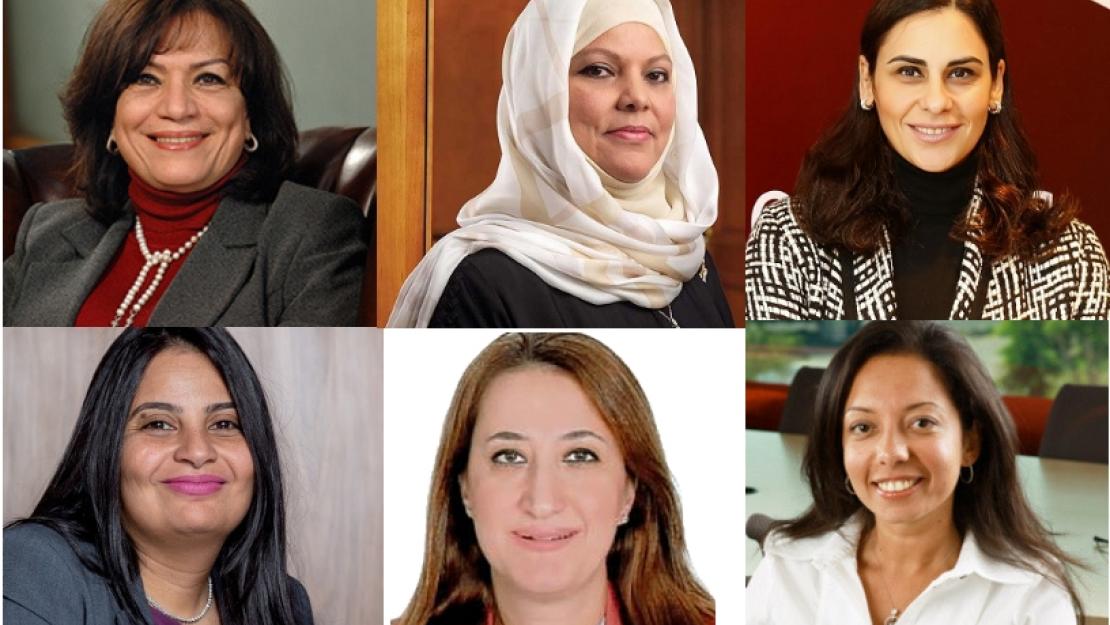
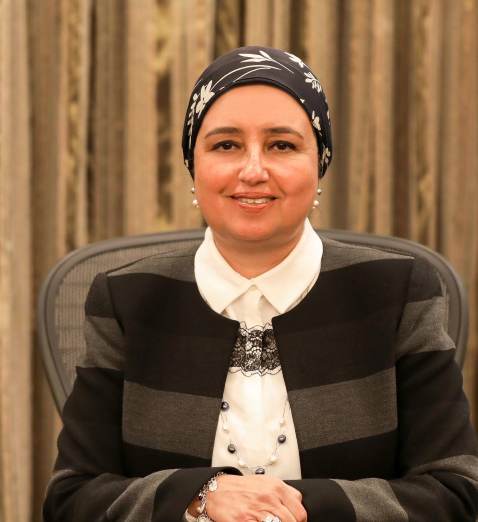
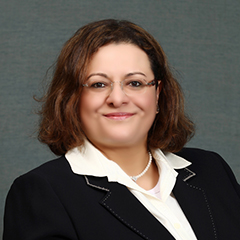
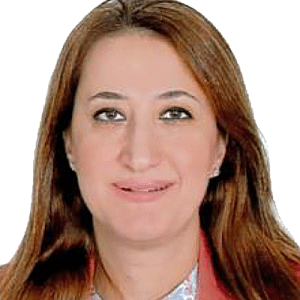
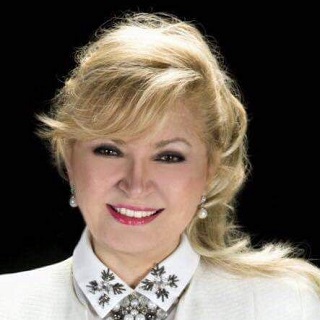
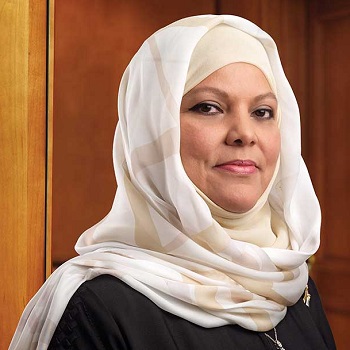
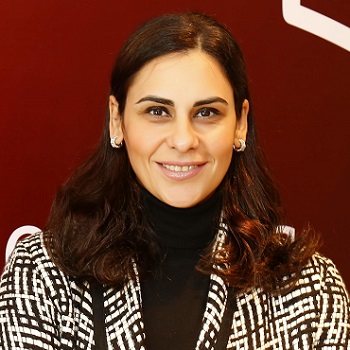
 HANIA MOHAMED SADEK '82, '90
HANIA MOHAMED SADEK '82, '90